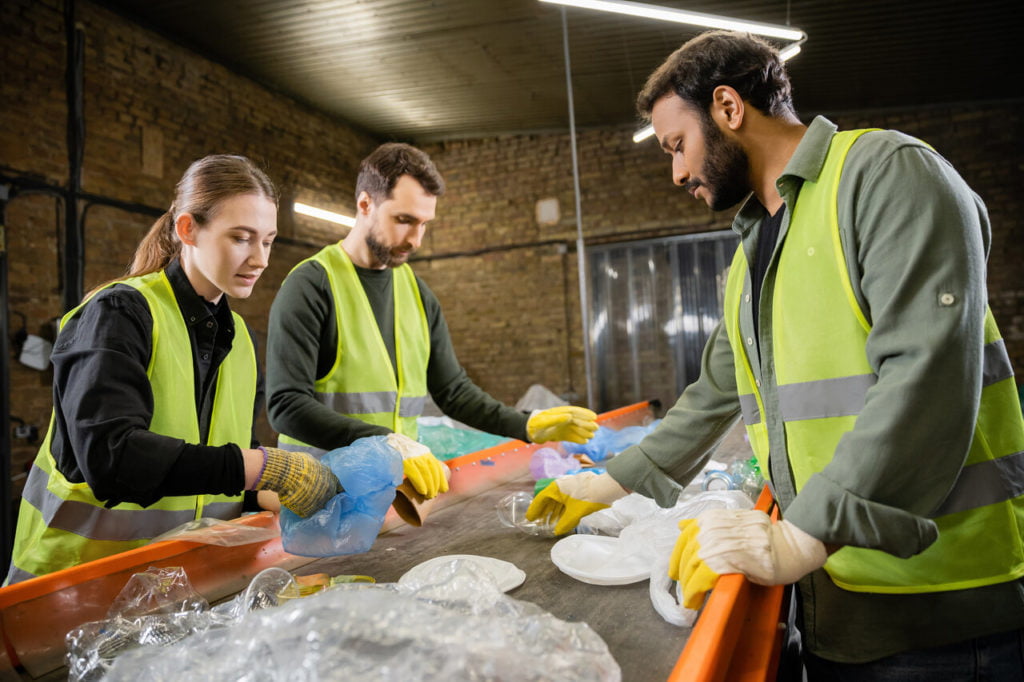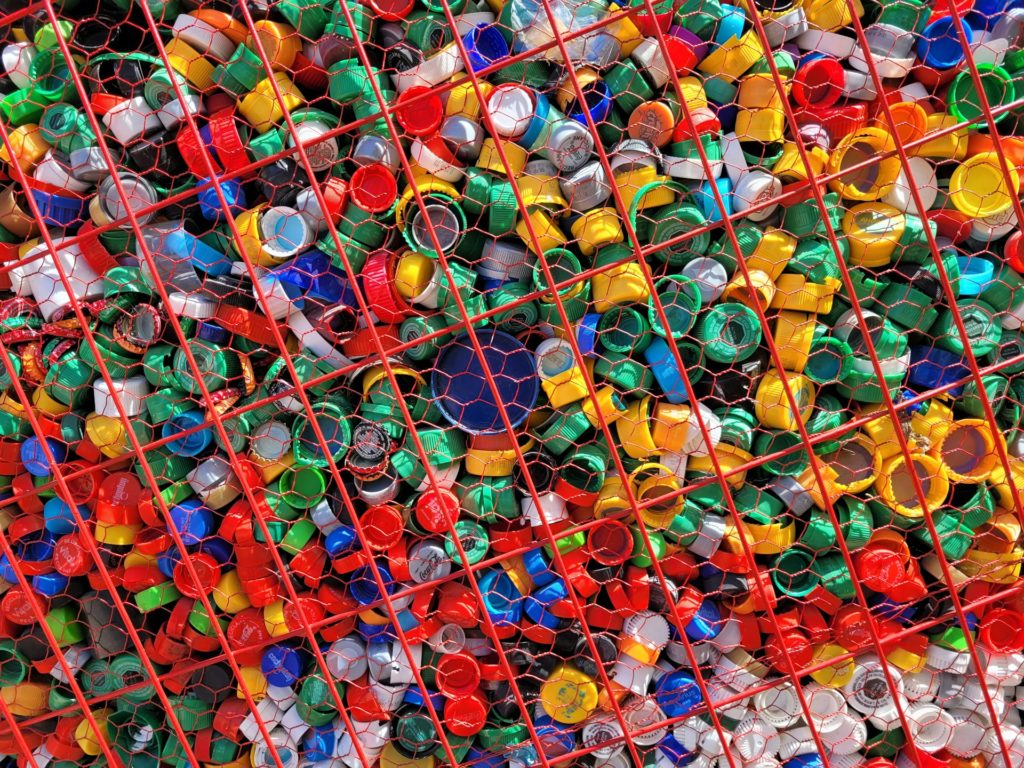The upcoming Plastic Tax in the UK has sent ripples through various industries, and the manufacturing sector is no exception. As one of the key pillars of the global economy, manufacturing enterprises are facing increased pressure to minimise their environmental impact and promote sustainability. With the impending Plastic Tax regulation that mandates a minimum of 30% recycled plastic in products or packaging, manufacturing industries must respond proactively to ensure regulatory compliance, reduce costs, and contribute to a more sustainable future.
A powerful solution to help manufacturing businesses navigate the requirements of the Plastic Tax, while also adhering to their sustainability commitments, lies within the innovative reprocessing services provided by Pulse Plastics. By optimising waste management strategies and incorporating high-quality reprocessed materials into their products or packaging, manufacturers can claim tax back, save on costs, increase their competitiveness, and enhance their environmental credibility.
This in-depth guide will outline the benefits of partnering with Pulse Plastics for reprocessing services, focusing on the opportunities presented by the Plastic Tax regulation, cost-saving measures, and advancing sustainability goals within the manufacturing landscape. By the end of this article, you will have gained valuable insights into how reprocessing services can transform your manufacturing business – empowering you to comply with current regulations, save money, and fulfil your sustainability objectives.
1. The Manufacturing Landscape and the Plastic Tax: Adapting for the Future
The Plastic Tax implementation presents an array of challenges for the manufacturing sector, requiring businesses to adapt their practices and strategies to comply with the new regulation. Key considerations for manufacturing industries in light of the Plastic Tax include:
- Effective Waste Management: Under the Plastic Tax, it is crucial for manufacturers to manage plastic waste responsibly, ensuring efficient disposal and treatment while paving the way for recycling efforts.
- Sustainable Operations: Industry players must work diligently to reduce their environmental impact, striving towards achieving sustainable practices and minimising reliance on virgin plastics.
- Balancing Costs and Compliance: Manufacturers must examine their existing cost structures to accommodate the Plastic Tax requirements without sacrificing profitability or competitiveness.
2. Embracing Reprocessing Services: Benefits for the Manufacturing Sector
Pulse Plastics’ reprocessing services offer a comprehensive solution to help manufacturers meet the demands of the Plastic Tax while also achieving their sustainability goals. By incorporating reprocessed materials within their operations, manufacturers can enjoy a host of benefits, including:
- Compliance with the Plastic Tax: Harnessing reprocessed materials enables manufacturers to comply with the 30% recycled content requirement, thereby mitigating the risk of penalties and maintaining a positive industry reputation.
- Cost-Effective Operations: Partnering with Pulse Plastics can lead to cost savings through tax back opportunities, making it more affordable for manufacturers to adopt reprocessing services and maintain a competitive edge.
- Enhanced Sustainability: Utilising reprocessed materials in the manufacturing process demonstrates a commitment to waste reduction, setting the stage for the sector to actively work towards a greener future.
3. A Partnership with Pulse Plastics: Unlocking Success for Manufacturers
Opting for Pulse Plastics as your reprocessing service provider brings significant advantages to the table for your manufacturing business. Key benefits of working with Pulse Plastics include:
- Premium Reprocessed Materials: Pulse Plastics assures the delivery of high-quality reprocessed materials suitable for various manufacturing applications, ensuring your end products maintain their durability, aesthetics, and performance.
- Expertise and Guidance: As an established specialist in the reprocessing space, Pulse Plastics offers valuable insights, tailored strategies, and cutting-edge solutions to help your business navigate the Plastic Tax regulations and sustainability challenges.
- Optimised Supply Chains: By integrating Pulse Plastics’ reprocessed materials into your supply chain, your operations become more agile, adaptable, and resilient, resulting in better risk management and cost efficiency.
4. Maximising the Reprocessing Opportunity: A Strategic Approach for Manufacturers
Successfully integrating Pulse Plastics’ reprocessing services necessitates a methodical and proactive approach. The following steps form the ideal roadmap for manufacturers looking to unleash the full potential of reprocessed materials within their operations:
- Comprehensive Assessment: Carry out an extensive review of your current plastic usage, manufacturing processes, and waste management strategies to pinpoint areas with growth potential and opportunities for integration with reprocessed materials.
- Establish a Trusted Partnership: Reach out to Pulse Plastics and create a strong working relationship that will allow you to draw on their expertise and industry knowledge within the reprocessing space.
- Develop Strategic Plans: In collaboration with Pulse Plastics, devise bespoke plans to integrate reprocessed materials into your operations, ensuring alignment with both the Plastic Tax requirements and your sustainability objectives.
- Promote Innovation and Sustainability: Cultivate an organisational culture that supports continuous improvement and innovation within the realm of sustainable manufacturing, thereby ensuring long-term success in adopting reprocessing.
Conclusion
The introduction of the Plastic Tax presents both obstacles and opportunities for manufacturing industries, calling on businesses to reassess their strategies for plastic usage, waste management and industry sustainability. By leveraging Pulse Plastics’ reprocessing services, manufacturers can effectively navigate the Plastic Tax landscape, significantly reduce costs, and actively contribute to a more sustainable manufacturing sector.
At Pulse Plastics, we are your ally in navigating the journey towards a reprocessing plastic transformation. Together, we can forge a more sustainable future for both the manufacturing sector and our planet. Begin your reprocessing transformation today and help build a greener, more prosperous future for the sector and the planet as a whole. Contact us today to schedule a consultation!


